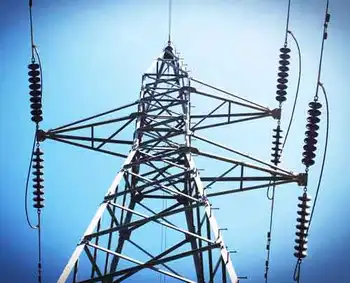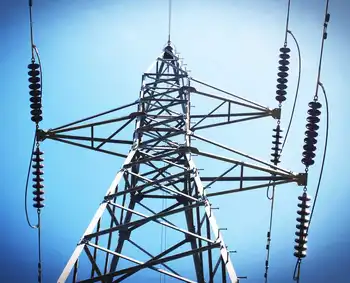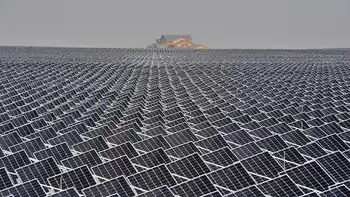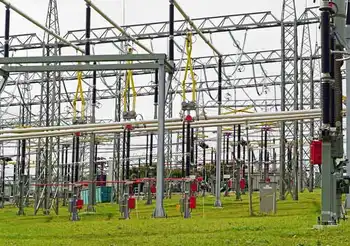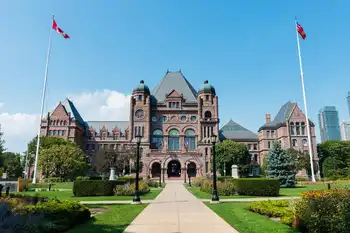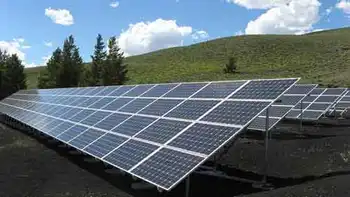Power rate hike will be a shocker
By Toronto Sun
High Voltage Maintenance Training Online
Our customized live online or in‑person group training can be delivered to your staff at your location.

- Live Online
- 12 hours Instructor-led
- Group Training Available
ThatÂ’s scary in a time of high unemployment, frozen salaries, fixed incomes and a still shaky economic recovery.
What’s more frightening is this massive hike in electricity rates — which shows no signs of slowing down post-2011 — hasn’t yet factored in the cost of putting a price on carbon dioxide emissions, either directly through a carbon tax, or indirectly through cap-and-trade.
This, ostensibly, to fight climate change. Ostensibly, because cap-and-trade, the form of carbon pricing preferred by most Canadian politicians, including Premier Dalton McGuinty and Prime Minister Stephen Harper, has failed to lower greenhouse gas emissions in Europe.
Today, every time another price hike in electricity rates is announced, politicians like McGuinty and Energy Minister Brad Duguid, along with hydro officials, solemnly lecture us about the need to fight climate change. But most of these rate increases have nothing to do with that.
The two biggest hikes Ontarians face on their hydro bills at the moment are a 12 increase in the regulated electricity price approved by the Ontario Energy Board, which took effect May 1 and will raise rates to consumers by 8-9.5, plus another 8 hike July 1, when OntarioÂ’s new Harmonized Sales Tax comes into effect.
The HST will also increase the price of gasoline by 8, as well as the price of natural gas and oil used for home heating, which again has nothing to do with putting a price on carbon dioxide emissions.
Far from addressing climate change, our electricity rates are going through the roof mainly to generate more revenue for government, a better return on equity for utilities, to upgrade our aging electrical grid and pay off debt.
The only impact on climate change is a brutal and unfair one to consumers. ItÂ’s that at some point, which obviously varies from household to household, electricity becomes so expensive, people cut their consumption not for the sake of the environment or because they have a choice, but because they canÂ’t afford to pay for the electricity they need.
That’s already happened in the UK, where millions of households have been driven into “fuel poverty”, defined as paying more than 10 of income for home energy costs alone.
Ontario’s multi-billion-dollar subsidy of wind and solar power — which basically means forcing consumers to pay more than the market price for electricity — is just starting to kick into hydro rates and will have a major upward impact in future.
Presumably, this will lower greenhouse gas emissions, if that power is used to replace fossil fuel-generated electricity.
But unless the government puts a price on carbon dioxide emissions — thereby raising electricity prices even more — these subsidies make no economic sense over the long term.
All that will happen is renewable energy companies will happily gobble up these inflated government subsidies, which last about 20 years, until they run out, then close shop.
In order for wind and solar power to become major energy sources, economically viable over the long term, they have to become price competitive with fossil fuels.
The whole point of putting a price on carbon dioxide emissions, whether through a carbon tax or cap-and-trade, is to speed up this process, by raising the cost of fossil fuels.
Eventually, so the theory goes, breakthroughs in research and technology will make renewable energy less expensive and more reliable, to the point where it will one day replace fossil fuels as a major energy source, funded primarily by private investment.
Whether all of this will ever happen, or work according to plan, is anyoneÂ’s guess.
For now, McGuinty and Duguid need to tell people the truth. That is, most of the recent price hikes to electricity have nothing to do with fighting climate change.
If we want to do that, itÂ’s going to cost us even more for electricity than weÂ’re paying now as well as for almost everything else, even with a 25 rate hike by the end of 2011.
As hard as that may be to believe. Or stomach.





